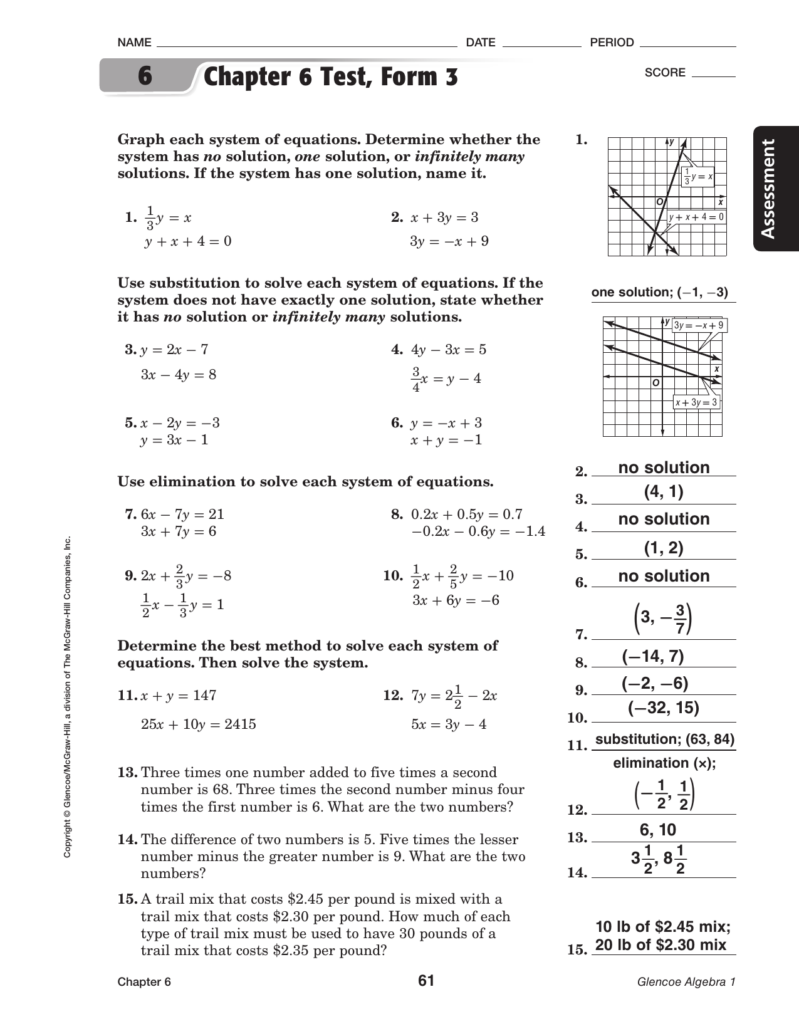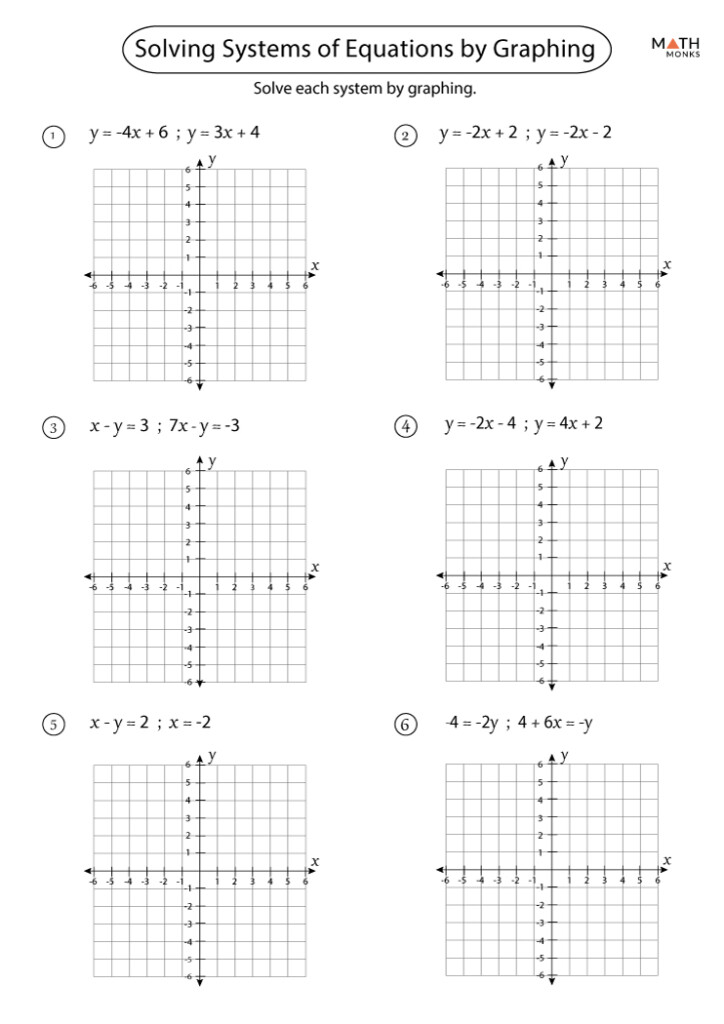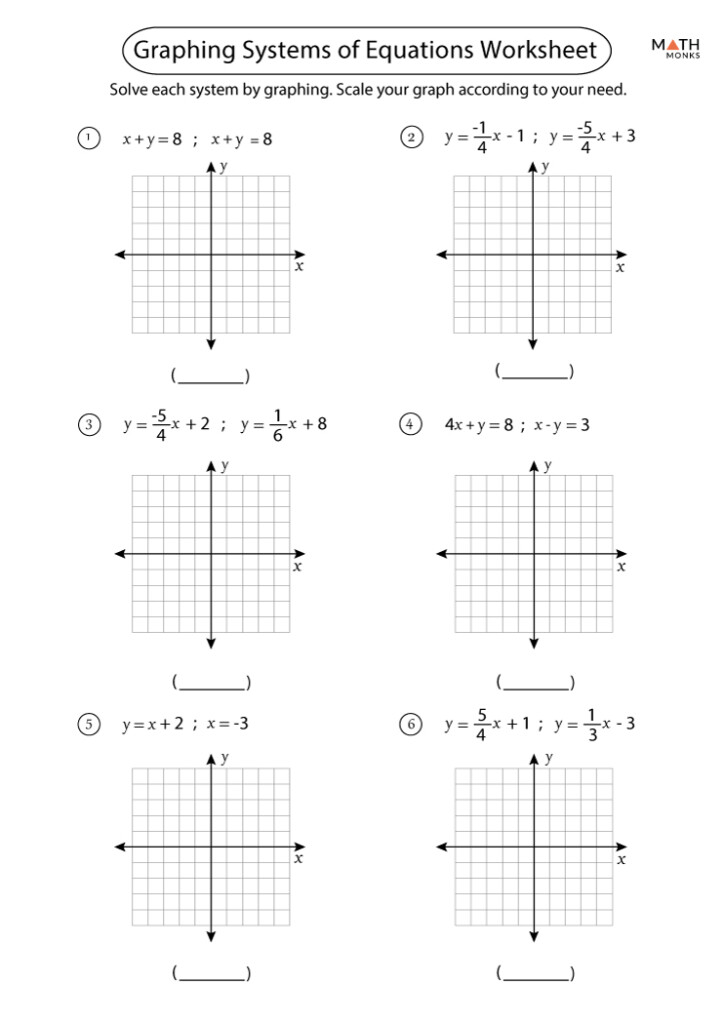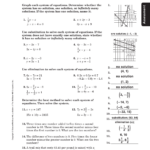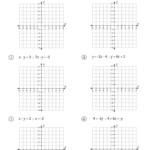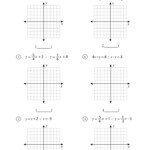Graphing Systems Of Equations Practice Worksheet Glencoe – Learning mathematics is incomplete without graphing equations. This involves graphing lines and points and evaluating their slopes. Graphing equations of this type requires that you know the x and y-coordinates of each point. You need to know the slope of a line. This is the point at which the line crosses the line’s y-axis.
Graphing equations in slope intercept form
There are two types of graphing equations: slope intercept form. Slope is the less complicated form, and slope intercept form is used to represent linear equations. Both of these forms can be easily converted to each other. You can use a worksheet to help you learn slope intercept form.
Slope-intercept form worksheets are used to practice the graphing process. These worksheets can be used by high school and grade 8 students. The slope-intercept formula will be used to solve equations and students will learn how it works. These worksheets provide practice on solving linear equations by graphing them in slope-intercept form.
You need to graph a linear equation by plotting the slope and the y-intercept. In this case, the slope is a negative number. The line will then fall. The y-intercept will be a point where the line will intersect with the y-axis.
Another way to solve equations is to substitute the given points with the slope and y-intercept. For example, if the slope is 350 and the y-intercept is 250, then the slope of the line is 10 units. The slope is also negative, so it’s -10. You can also substitute a point to replace the slope m in equations.
In this lesson, we learned the basics of the slope-intercept form of linear equations. Each case was studied individually and the concept of slope was learned. Parallel lines are those that share the same slope in the same coordinate plane. However, this does not mean that the two lines are exactly parallel.

